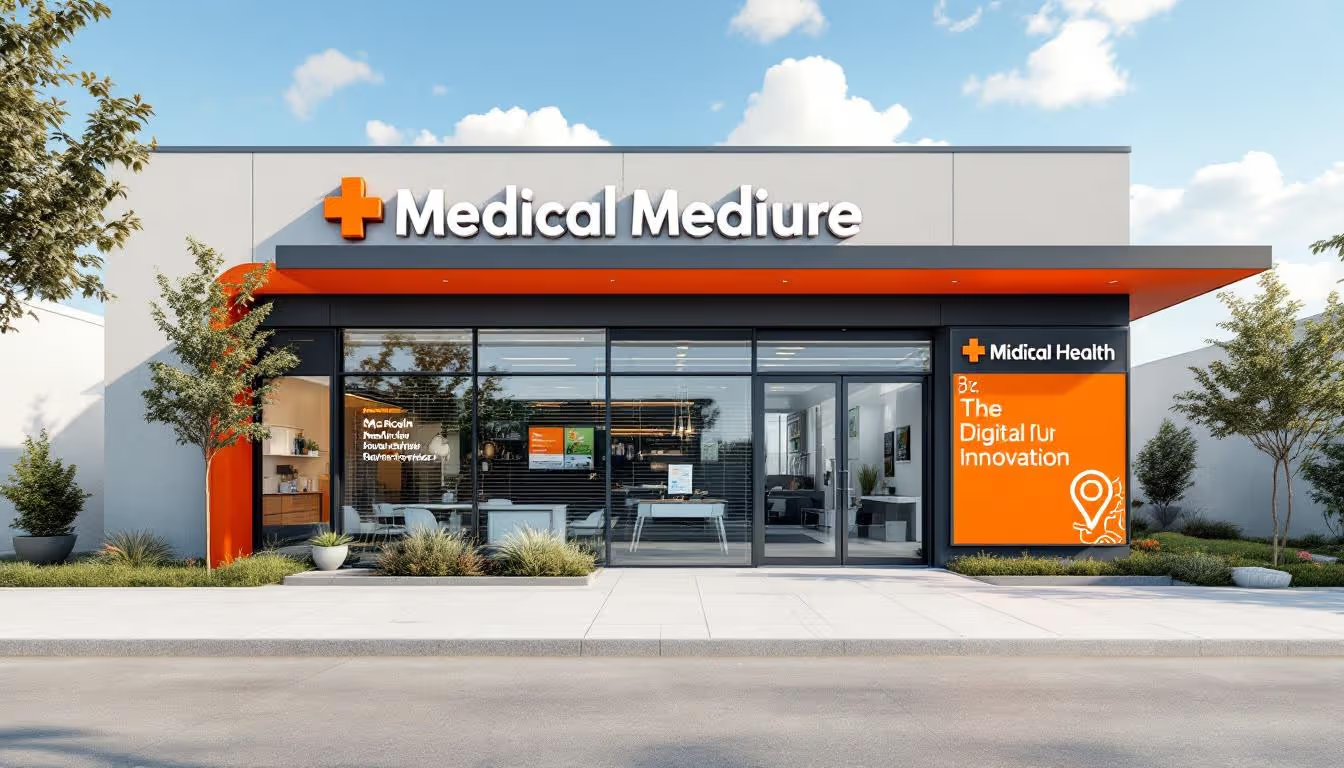What Is Healthcare SEO?
Unlocking the Power of Healthcare SEO for Better Patient Outreach


What Is Healthcare SEO?
Understanding Healthcare SEO and Its Significance
Healthcare SEO is a specialized form of search engine optimization tailored specifically for healthcare organizations and providers. In an increasingly digital age, most patients turn to online search engines like Google to find medical services, health information, and nearby providers. This makes healthcare SEO a vital component for practices aiming to enhance online visibility, attract new patients, and grow their reputation. Unlike general SEO, healthcare SEO requires adherence to strict regulations such as HIPAA and incorporates medical accuracy, trustworthiness, and local optimization strategies to succeed.
Defining Healthcare SEO and Its Role in Digital Healthcare Marketing

What is healthcare SEO?
Healthcare SEO is the process of optimizing a healthcare organization’s website and online presence to appear more prominently in search engine results. Its primary goal is to attract prospective patients by improving visibility for relevant health-related searches. This involves both technical factors, such as improving site speed, ensuring mobile usability, and implementing schema markup, and content-related strategies, like creating authoritative, trustworthy, and medically accurate information.
Effective healthcare SEO emphasizes quality content that demonstrates experience, expertise, authority, and trustworthiness—often summarized as E-E-A-T principles. By focusing on local search optimization, building reputable backlinks, and managing online reviews, healthcare providers can increase their visibility to people searching for specific services nearby.
How does healthcare SEO work?
Healthcare SEO works by aligning a website's elements with search engine algorithms and user search intent. First, extensive keyword research identifies what potential patients are searching for, including long-tail and locality-based keywords. This data guides content creation, ensuring that each page is relevant and targeted.
Technical SEO enhances crawlability and indexation, making sure search engines can easily access and understand the site. Structured data, such as schema markup for local businesses or medical articles, helps search engines display rich results, boosting visibility.
Ongoing efforts include optimizing Google My Business profiles, earning backlinks from authoritative sources, and encouraging positive patient reviews. Regularly monitoring performance metrics, like organic traffic, search rankings, and bounce rates, allows for strategic adjustments, ensuring visibility persists and improves over time.
Impact of healthcare SEO on online visibility
Healthcare SEO significantly boosts a practice’s online presence by ensuring it ranks higher in search engine results pages (SERPs). High rankings mean increased visibility when patients search for healthcare providers or specific treatments. This improved visibility translates into more website traffic, greater patient inquiries, and higher appointment rates.
For local healthcare practices, local SEO tactics—such as optimizing Google Business Profiles and creating location-specific content—are especially effective in attracting nearby patients. Over time, consistent SEO efforts help establish the practice as an authoritative and trustworthy resource in its community.
Overall, healthcare SEO not only enhances online recognition but also builds credibility and trust. It ensures that potential patients find accurate, reliable information easily, helping them make informed healthcare decisions while connecting them with the right providers.
Key Components and Strategies of Healthcare SEO

What are the core concepts and best practices of healthcare SEO?
Healthcare SEO focuses on elevating the online visibility of medical websites through a range of tailored strategies. The foundation is comprehensive keyword research, which involves identifying relevant search terms used by patients, including both medical terminology and common language. This ensures content is aligned with patient search intent, boosting the likelihood of appearing in relevant searches.
Creating high-quality, patient-friendly content is vital. This content should demonstrate Experience, Expertise, Authority, and Trustworthiness (E-A-T), especially for topics classified as Your Money or Your Life (YMYL), which directly impact health and safety. Healthcare providers need to ensure their content is accurate, updated regularly, and backed by credible sources.
Technical SEO elements such as optimizing site speed, ensuring mobile responsiveness, implementing schema markup, and securing the website with HTTPS are crucial. These enhancements improve crawlability, user experience, and trustworthiness, which are valued by search engines.
Local SEO plays a significant role, as many healthcare services serve specific geographic areas. Claiming and optimizing Google My Business profiles, maintaining consistent NAP (Name, Address, Phone number) details across directories, and actively encouraging positive reviews help attract nearby patients.
Monitoring SEO performance through analytics tools like Google Analytics and Search Console allows continuous refinement of strategies. Earning backlinks from reputable health sources and authoritative institutions boosts domain authority and ranking.
Overall, healthcare SEO aims to improve the online presence of healthcare providers, making it easier for potential patients to find trustworthy services, thereby increasing traffic, appointments, and patient trust, all while ensuring compliance with healthcare regulations like HIPAA.
Technical SEO Elements and Compliance for Healthcare Websites
How does healthcare SEO differ from general SEO practices?
Healthcare SEO is distinct from general SEO because it addresses the particular requirements of the healthcare industry. Unlike typical SEO strategies, healthcare SEO must comply with strict regulations such as HIPAA, which govern patient privacy and data security.
An essential aspect of healthcare SEO is ensuring content accuracy and establishing authority, often through medical expert review and reliable sources. This industry-specific focus necessitates adhering to standards like E-E-A-T—highlighting Experience, Expertise, Authority, and Trustworthiness—since healthcare content is classified as Your Money or Your Life (YMYL) material.
Technical website enhancements are also more critical for healthcare sites. These include optimizing page load times, enhancing site security with HTTPS, and creating a clear, logical site architecture that assists both users and search engines in navigating the site effectively.
Local search plays a vital role too, as many healthcare practices serve specific geographic areas. This involves optimizing Google My Business profiles, managing reviews, and including location-specific keywords.
Reputation management through patient reviews and testimonial collection forms an integral part of healthcare SEO, building both trust and local search visibility.
In short, while general SEO focuses on broad online visibility, healthcare SEO incorporates targeted strategies that comply with legal standards and prioritize trustworthiness, often requiring specialized technical and content practices tailored to the sensitive nature of healthcare information.
Local SEO and Reputation Management in Healthcare SEO

How can healthcare SEO improve online visibility and search rankings?
Healthcare SEO plays a vital role in boosting a medical website’s presence on search engines like Google, Bing, and others. It achieves this by optimizing website content with relevant health and service-related keywords that match patient search queries. Ensuring the site is mobile-responsive and loads quickly enhances user experience, which is favored by search engines.
Local SEO strategies are particularly important for healthcare providers. Optimizing Google My Business profiles, for example, helps appear in local search results and Google’s Local Pack, making it easier for nearby patients to find the practice. Encouraging patient reviews and ratings builds trust and influences local rankings positively.
Creating authoritative, up-to-date, and well-structured content—such as educational blog posts, FAQs, and multimedia—can answer patient questions, demonstrate expertise, and improve search rankings. Incorporating backlinks from reputable healthcare sources further boosts domain authority.
Structured data markup, like LocalBusiness and MedicalEntity schema, helps search engines understand the website content better, often resulting in rich snippets that increase visibility.
Maintaining active reputation management by responding to patient reviews, managing feedback, and engaging on social media strengthens the practice’s credibility. Regularly monitoring SEO performance with analytics tools allows continuous refinement of strategies, ensuring higher rankings over time and attracting more local patients.
In sum, healthcare SEO enhances online visibility and search rankings by combining content optimization, technical improvements, local SEO tactics, and reputation management to build authority and trust, ultimately leading to increased patient inquiries and practice growth.
Content Development and E-E-A-T Principles in Healthcare SEO
What role does healthcare SEO play in healthcare marketing and patient acquisition?
Healthcare SEO is vital for expanding a medical practice’s online presence and attracting new patients. By optimizing a website with targeted keywords, local SEO tactics, and high-quality content, healthcare providers can improve their visibility in search engine results, especially for local queries like 'best rehab therapist' or 'top nursing facility.'
Effective SEO strategies help practices reach patients at the right moment when they are actively searching for healthcare services. This increased visibility leads to more website traffic, inquiries, and ultimately, new patient appointments.
A well-optimized site builds credibility through positive reviews, testimonials, and authoritative content, which convinces prospective patients of the practice's trustworthiness. Incorporating mobile-friendly design, fast load speeds, and secure HTTPS further enhances user experience, reducing bounce rates and encouraging patient engagement.
Technical elements like structured data markup help search engines better understand healthcare content, leading to richer search results and higher rankings. Consistent content updates and reputation management—notably monitoring reviews—ensure that the practice remains relevant, trustworthy, and top-of-mind for local patients.
Additionally, integrated marketing efforts, combining SEO with paid ads, social media, and review campaigns, can accelerate patient acquisition.
In summary, healthcare SEO is a comprehensive, long-term strategy that sustains online visibility, fosters trust, and drives patient growth. It plays a central role in modern healthcare marketing by ensuring practices are easily findable, credible, and competitive in the digital landscape.
Measuring Success and Long-term Benefits of Healthcare SEO
Are there comprehensive educational resources or guides available on healthcare SEO?
Yes, healthcare organizations looking to improve their SEO strategies have access to a variety of detailed guides and educational resources. Trusted industry websites, digital marketing firms, and SEO platforms offer a wealth of tutorials, best practices, and strategic insights tailored specifically for healthcare providers.
These resources often cover crucial aspects such as keyword research tailored for medical services, creating content that emphasizes E-E-A-T principles (Experience, Expertise, Authority, Trustworthiness), optimizing local SEO efforts like Google My Business, and ensuring technical website health while remaining compliant with healthcare regulations like HIPAA.
Moreover, many guides include practical advice on measuring SEO performance, building backlinks from reputable sources, and maintaining ongoing SEO efforts for sustainable growth.
By utilizing these comprehensive educational tools, healthcare practices can better understand how to enhance their online visibility effectively, attract targeted patient traffic, and achieve long-lasting search engine ranking improvements.
For those seeking to deepen their understanding of healthcare SEO, searching for
Case Studies and Success Stories in Healthcare SEO
 Numerous healthcare organizations have experienced remarkable success through strategic SEO efforts. Some clinics and hospitals report organic traffic increases of over 20,000%, showcasing the potential of comprehensive healthcare SEO campaigns.
Numerous healthcare organizations have experienced remarkable success through strategic SEO efforts. Some clinics and hospitals report organic traffic increases of over 20,000%, showcasing the potential of comprehensive healthcare SEO campaigns.
These success stories often highlight critical tactics such as optimizing local search presence, creating authoritative and medically reviewed content, and enhancing website technical performance. For instance, practices that have focused on local keywords like "best rehab therapist near me" and optimized their Google Business Profiles have significantly improved their local rankings.
Implementing a mix of high-quality content, backlink acquisition from reputable sources, mobile responsiveness, and fast website speed has been instrumental in these improvements. Many healthcare providers also monitor their progress regularly using tools like Google Search Console and Google Analytics, which help in fine-tuning strategies for better results.
Ultimately, a well-rounded SEO approach—comprising technical SEO, content marketing, local SEO, and reputation management—can yield impressive boosts in visibility, creating more opportunities to attract and convert patients.
| Success Metrics | Examples | Strategies Used | Outcomes |
|---|---|---|---|
| Traffic Growth | Up to 21,383% | Local SEO, Content, Backlinks | Higher patient inquiries |
| Search Ranking | Top 3 positions for key terms | Technical SEO, Mobile Optimization | Increased site visits |
| Review Quantity | Thousands of new reviews | Reputation management | Improved trust and local rankings |
By consistently applying healthcare-specific SEO practices, organizations can achieve a notable edge over competitors, strengthening their online presence and expanding their patient base.
Choosing the Right Healthcare SEO Partner and Cost Considerations
When it comes to enhancing your healthcare organization’s online presence, finding a specialized SEO partner can make a significant difference. Healthcare providers should look for agencies that focus exclusively on the medical and healthcare sectors. Reputable firms often showcase their success stories through case studies and client testimonials, demonstrating expertise in increasing organic search visibility, managing local SEO efforts, and fostering patient growth.
Popular industry sources like Cardinal Digital Marketing, First Page Sage, and Coalition Technologies are known for their healthcare-specific SEO services. Attending industry conferences and seeking peer recommendations can also lead you to trustworthy experts. Additionally, consulting with professional associations or wellness organizations may help identify reputable agencies with proven track records.
Evaluating potential partners involves reviewing their technical expertise, such as conducting comprehensive SEO audits and reporting transparency. This ensures they can craft strategies aligned with your practice’s goals.
Regarding costs, healthcare SEO services typically range from approximately $3,000 to over $10,000 per month. The variation depends on a practice’s size, the competitiveness of targeted keywords, and the scope of work—including content creation, technical optimization, and ongoing link-building efforts.
Investing in professional SEO is valuable because it ensures compliance with healthcare regulations, enhances credibility, and maximizes the return on your marketing investment. A well-chosen agency provides not just short-term gains, but sustainable growth through long-term optimization efforts.
The Future of Healthcare SEO and Staying Ahead of Trends

What are the typical costs associated with healthcare SEO services?
Healthcare SEO services usually range from $1,500 to $5,000 per month when offered under a retainer agreement. Many specialized agencies present packages within this price bracket, with the actual fee reflecting factors like project scope and complexity.
Small or local healthcare practices often find their costs to be more affordable, typically between $300 and $2,000 monthly. These packages frequently include local SEO activities such as citation management, local keyword optimization, and Google Business Profile enhancements.
Beyond monthly retainers, other billing models are common. Hourly rates for healthcare SEO usually fall between $100 and $300 per hour, suitable for specific tasks or consultations. Project-based pricing is also prevalent, with budgets ranging from $5,000 to $30,000 depending on the project size and depth.
Several factors influence overall expenses, including the competitiveness of the healthcare niche, the number of locations served, and specific strategic goals. Smaller practices operating in less competitive markets tend to spend at the lower end of the spectrum. In contrast, large practices or hospitals targeting highly competitive keywords may invest significantly more to achieve desired results.
Staying informed about current costs and trends helps healthcare organizations make better decisions when investing in SEO strategies and ensures that they select appropriately scaled services that deliver the best return on investment.
As the landscape of healthcare SEO continues to evolve, understanding these costs alongside emerging trends remains vital for success and staying competitive in an increasingly digital healthcare environment.
Conclusion and Final Thoughts on Healthcare SEO
Healthcare SEO is an essential component for medical practices and healthcare organizations aiming to improve their online visibility, reach more patients, and establish authority in their field. Its benefits include increased organic traffic, better search rankings, enhanced credibility, and cost-effective marketing compared to paid channels. Effective strategies involve thorough keyword research, high-quality and accurate content, technical website optimization, local SEO efforts, and reputation management through reviews and reputation signals.
However, healthcare SEO is not a one-time effort. It requires ongoing dedication, regular content updates, continuous monitoring of SEO performance, and adaptation to changes in search engine algorithms and regulations such as HIPAA. Consistent effort ensures sustained visibility and growth, building trust among patients and reinforcing the practice's credibility.
For healthcare providers, investing in professional SEO services or developing an in-house team can offer significant advantages. Such investment can yield long-term success, helping practices to stay competitive in a highly saturated digital environment and making it easier for prospective patients to find and choose their services. With diligent effort and a strategic approach, healthcare SEO can be a powerful tool to grow your practice and better serve your community.
Embracing Healthcare SEO for Better Patient Engagement and Practice Growth
In conclusion, healthcare SEO remains a critical and powerful tool for healthcare organizations seeking to improve their online presence, attract new patients, and build their authority. Its comprehensive approach — covering technical optimization, high-quality content, local strategies, and reputation management — ensures sustainable success in a competitive healthcare landscape. While results can take months to materialize, consistent effort combined with expert guidance can lead to significant gains in search ranking, trusted visibility, and patient engagement. Healthcare providers are encouraged to prioritize healthcare SEO as a long-term investment, leveraging the latest trends and innovations to stay ahead in an ever-evolving digital world. Embracing this strategy will not only enhance marketing efforts but ultimately contribute to delivering better healthcare services to those seeking care.
References
- Healthcare SEO: 5-Step Medical SEO Guide for Beginners
- Healthcare SEO: how to improve your organic performance
- Is Healthcare SEO Really Worth the Investment? | Net Health
- Healthcare SEO: All the Benefits—And One Thing It Won't Do
- Healthcare SEO: How to Get More Organic Traffic - Semrush
- What is healthcare SEO? | Marketing.com
- Healthcare SEO: The Ultimate Guide to Medical SEO in 2025
- Healthcare SEO In 11 Steps [Examples Included]







